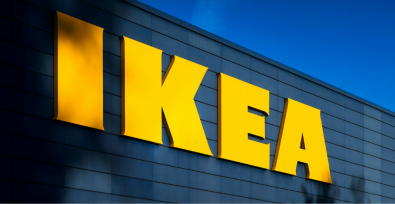A recent report revealed that during Germany’s communist dictatorship, flatpack furniture company IKEA made use of forced prison labor. In response to those findings, CNN reports the furniture giant has agreed to contribute 6 million euros ($6.5 million) to a government fund compensating survivors.
Prison labor behind the iron curtain
Between 1949 to 1990 the Soviet Union occupied East Germany under a rigid communist government known as the German Democratic Republic, or GDR. Opposition to the GDR of any kind was stamped out and tens of thousands of people landed in prison. Many Western companies took advantage of the forced labor of GDR prisoners. After the media began uncovering evidence that IKEA might be one of them, the company commissioned its own investigation. That investigation found that as recently as the 1980s prisoners were producing furniture for IKEA.
Walter Kadner, CEO and Chief Sustainability Officer at IKEA Germany, said:
“We deeply regret that products for IKEA were also produced by political prisoners in the GDR…We have given our word to those affected that we will participate in providing support.”
In a recent statement, IKEA Germany announced it would be voluntarily putting 6 million euros towards a new government fund. The fund promises to provide compensation to victims of the East German dictatorship.
IKEA setting the bar
Germany’s ruling coalition proposed setting up the hardship fund in 2021 following decades of campaigning by survivor groups. Parliament will formally vote on the establishment of the fund in the coming weeks. IKEA’s contribution to the fund is the result of conversations between IKEA Germany and the Union of Victims’ Associations of Communist Dictatorship (UOGK). UOGK works to ensure justice for those wrongly convicted in communist Germany.
Dieter Dombrowski, the chairman of UOGK said:
“After it became known that the company was involved in forced prison labor, IKEA accepted our invitation to talk. Together we have taken the path of enlightenment and IKEA has met those affected on an equal footing.”
IKEA’s million-dollar payment to help compensate victims is the first of its kind. Welcomed by victim advocacy groups, Dombrowski described the development as “groundbreaking“, adding “we hope that other companies will follow IKEA’s example.”
Compensation fund “Just the tip of the iceberg”
Of course, IKEA isn’t alone. It’s just one of many companies that benefitted from forced prison labor under the GDR. A former chairman of UOKG calls on all companies who benefitted from prison labor in communist Germany to compensate the survivors who still bear the mental wounds of forced labor.
Evelyn Zupke, special representative for GDR victims in the German parliament, said:
“IKEA’s pledge to support the hardship fund is an expression of a responsible approach to dealing with dark chapters in the company’s own history.
“We can’t undo what prisoners had to suffer in the GDR’s prisons, but we can treat them with respect today and support them.”
Freedom United stands with Zupke, UOKG and others calling on companies that benefitted or are benefitting from forced prison labor to pledge their support and do more to ensure their supply chains today are forced labor free.





Freedom United is interested in hearing from our community and welcomes relevant, informed comments, advice, and insights that advance the conversation around our campaigns and advocacy. We value inclusivity and respect within our community. To be approved, your comments should be civil.
Kudos to IKEA for acknowledging their wrongdoing, but $6 million euros sounds like a drop in the bucket, no where near enough to truly compensate the victims.